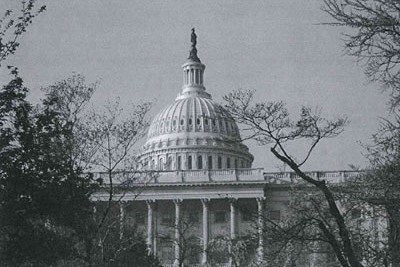by Valerie Ramsburg, Young Growers Alliance
For the 3rd year, the U.S. Apple Association hosted the "Young Apple Leader Program." Two individuals from the primary apple growing states are selected to represent their respective state at legislative meetings as well as U.S. Apple Association's annual committee meetings.
I had the privilege of being part of the 2012 class of Young Apple Leaders, a melting pot of 15 young industry leaders from all around the country.
We attended a reception on Wednesday evening hosted by U.S. Apple Association, their board members and staff. It was quite a large group, but a great way to set the stage for our Washington, D.C. visits. It was exceptionally helpful to put names with faces and to further develop our personal relationships with the seasoned members of the apple industry.
Thursday began with an "Industry Issues," breakfast that gave a briefing of what we should expect during our Capitol Hill visits, along with important talking points and main issues of concern. Some of those issues included Ag Labor, Chinese imported apples, MAP Funding and the 2012 Farm Bill. My group met with Legislative Assistants for Senator Toomey and Representative Holden. I couldn't help but be in awe as I was walking from the Senate to the House of Representatives buildings. It was truly an honor to be in the heart of our country's government.
The overall tone for our legislative meetings was very positive and extremely supportive for the agricultural industry as a whole. However, we were told more than once that any issue of great significance will most likely not be resolved in an election year. It is expected that some of the gridlock will shift once the presidential election concludes in November 2012. We were encouraged to keep scheduling meetings and voicing our concerns. If our representatives do not have a constant reminder of our issues and challenges, they risk being lost in the shuffle.
I believe that Capital Hill Day is an opportunity for individuals to make a difference for all of agriculture. It leaves you with a renewed sense of hope that change will come, albeit slow. At the very least, it leaves you with a great appreciation for all the people working night and day for your business.
Thank you to Nancy Foster, Diane Kurrle, Mark Gedris, and the rest of U.S. Apple's staff and board for your hospitality, your patience and for your willingness to share your vast knowledge of agricultural policies. Thank you to Ken Guise and Knouse Foods Cooperative for your sponsorship. Lastly, thank you to all the senior members of the apple business, the incoming freshman really appreciated you showing us how it's done!
Contact us

Social Media
Contact us



